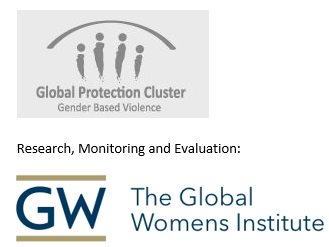- Disarmament, demobilization and reintegration (DDR) programs seek to contribute to sustainable peace and long-term development by transitioning ex-combatants from conflict-related roles to contributing members of society through the provision of services, training, and livelihoods opportunities (Council of the European Union and the European Commission, 2006).
- However, DDR programmes have not always adequately considered gender-related issues. In particular, female ex-combatants and women associated with armed forces ( women associated with armed forces) may have difficulty accessing DDR services because they are not considered a security risk, or because of restrictive policies such as “no weapon, no entry” rules, which exclude women who served non-combat roles (i.e. as cooks or sexual slaves) (Specht, 2006). Other females may hesitate to utilize DDR programs due to social stigma and fear of discrimination. For example, female combatants are often denounced as “unfeminine,” and mothers who have given birth to children out of rape may face social rejection when they seek support. Further, many DDR programmes are tailored only to men and do not consider the gender-related needs and safety concerns of women, putting them at continued risk of sexual violence in the cantonment sites where demobilization takes place (Specht, 2006).
- And yet, without support of DDR services, women associated with armed forces risk becoming even further marginalized and excluded from community and social support mechanisms (UNDP, 2011). With few skills to support themselves former women associated with armed forces may resort to prostitution or sexually exploitative relationships in order to survive (Council of the European Union and the European Commission, 2006).
- In addition, a failure to understand the particular social challenges of male ex-combatants in DDR programming may inadvertently contribute to violence against women. Male ex-combatants often reintegrate into communities that have experienced shifts in social norms and gender roles due to conflict. Some may experience a “crisis in masculinity” as their previous identity as a soldier or fighter (where their masculinity is highly associated with violence) dissolves. They may react to this crisis with increased violence against women and girls (Council of the European Union and the European Commission, 2006). When former ex-combatants are sent back to their communities without psychosocial support, clear roles or marketable skills to help them reintegrate, communities often see a rise in alcoholism, drug abuse, and violence against women (Steinberg, 2007).
- SCR 1325 (2000) “encourages all those involved in the planning for disarmament, demobilization and reintegration to consider the different needs of female and male ex-combatants and to take into account the needs of their dependents.” Because of the risks involved for women in the community and women associated with armed forces during DDR, it is essential that gender be mainstreamed throughout every aspect of the DDR process. The following are guiding principles and key recommendations for preventing VAWG through gender-sensitive DDR programming.
Video: When Peace Comes: A gender perspective on DDR and post-conflict recovery
